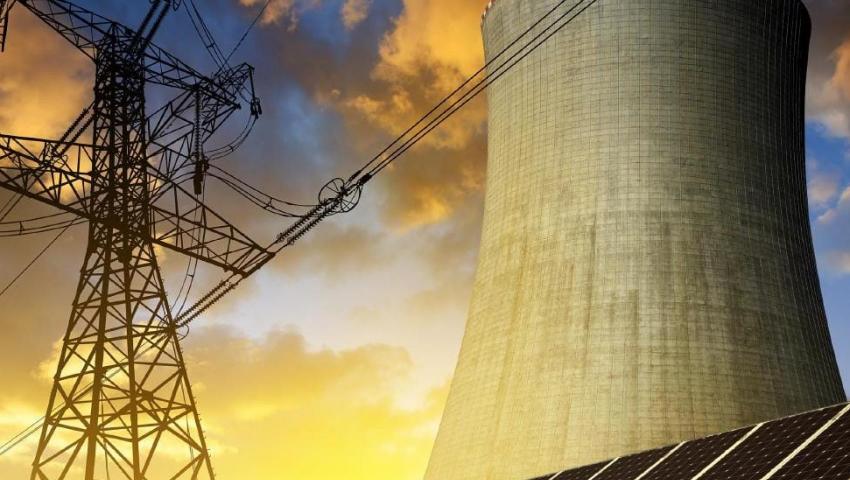The business presented two options for achieving low-emission energy - through renewable energy technologies, nuclear power plants or gas power plants
Together with the small carbon footprint, forecasts point to low prices for businesses of 74-75 euros / MWh

Source: 3eNews, archive
Georgi Velev
Bulgaria can reach the EU's targets for reducing its carbon footprint by 2050, and business shows two options for achieving this. One model is to achieve the goals by building renewable energy plants and steam and gas facilities. And the other option is again through massive investments in renewable energy sources and construction of new nuclear facilities. This became clear during the discussion "Long-term vision for the development of the Bulgarian electricity industry." In the combination of renewables with a gas plant, the investment will be around 11.7 billion euros, with most of the investments being made entirely by business. According to the presented data, the private sector can take 7.9 billion euros of these investments, it became clear from the presentation of Rumen Radev, Deputy Chairman of the Board of the Association of Industrial Capital in Bulgaria.
"We are not waiting for sponsorship from the state, on the contrary - there is enough interest from investors with experience and reputation," said Rumen Radev of BICA.
Under this option, Bulgaria will sharply reduce its carbon footprint after 2040 and it will be reduced to 63 kg / CO2 / MWh in 2050. At the same time, the price of electricity in the energy mix will average 81 euros / MWh in 2030. ., and in 2050 the price may be 74 euros / MWh.
In the second model - the use of renewable energy and nuclear energy, the necessary investments are expected to be 17 billion euros, of which 11.5 billion euros will be invested by companies. Under this option, the carbon footprint falls sharply again around 2040 and reaches 38 kg / CO2 / MWh in 2050. According to these bills, the projected price of electricity will be 76 euros / MWh in 2030 and 75 euros / MWh in 2050.
However, in all models, coal-fired power plants will cease to exist in their current form by 2035 at the latest. Approximately in this period, the shock installation of energy storage systems will begin and electricity exports will be gradually limited.
In the assumptions of the models, GDP growth of less than 2% is expected after 2030, as well as inflation in Bulgaria. At the same time, an average annual increase in the price of harmful emissions quotas of EUR 5 / t per year is envisaged. The companies will certainly have to start slowly withdrawing from the fossil fuel base, Radev explained.
However, in the field of "green energy" there should be an adequate pricing policy, insist BICA. "Every year we pay BGN 170 million more for RES due to the wrong ways of implementing an otherwise correct policy." This was explained by the chairman of BICA Vasil Velev. The reason for these expenses is due to the high preferential prices to which these RES capacities were connected years ago. According to Velev, more than BGN 25 billion has been made by the Bulgarian worker due to wrong decisions for various renewable energy sources, cogeneration or other energy projects, which were eventually paid for in the last 20 years by people and businesses, Velev explained.
I very much hope that this discussion will continue in a real public debate, from which the optimal solutions for the development of electricity in Bulgaria will be derived, announced at the beginning Vasil Velev, Chairman of BICA. According to him, over the last ten years, businesses have paid BGN 750 million more for "incorrect implementation of a proper policy for buying electricity from the energy exchange."
Production of pure hydrogen
From the exported data it is clear that when using the RES + NPP option there will be very serious surpluses of electricity at certain hours. They will be used in electrolyzers to produce pure hydrogen. It will be used later, when necessary, it became clear during the presentation.
It is indisputable that the renewable capacities must be developed, the head of the Energy System Operator Angelin Tsachev was categorical, who joined the discussion of the business. According to him, the emphasis should be on nuclear energy, because it will be the basis for the development of such important new technologies, including the production of pure hydrogen. Another key element is energy storage systems, which will need to develop and support baseline energy.
According to Tsachev, the main part of the future emission-free energy will be played by PAVEC capacities and electrolyzers. It is through the development of hydrogen technologies that many countries, even the whole of Europe, will be able to reduce their dependence on fossil fuels, including natural gas. It is a matter of talks and political decisions on which path we will take in the next 20 years. But let's not miss the chance to reduce dependence on fossil fuels, Tsachev explained.
The energy regulator will be an engine of the change in energy, promised the new chairman of the regulator Stanislav Todorov. "There are many challenges, the first of which is that in 5 - maximum 10 years, we must move to a low-carbon economy. The other is that we must part with the comfort that gives us the huge generating capacity we have at the moment. Energy production is already much more dispersed, independent, even democratic ", explained the new head of the EWRC. He promised support for business in this transition to an emissions-free economy. To this end, the EWRC plans to prepare its vision for the development of the sector within the next 2 months. "We will not impose it, but we will show it to everyone to start thinking about where the market and business will develop," Todorov explained.
